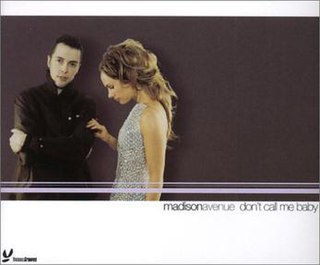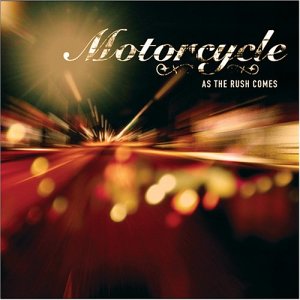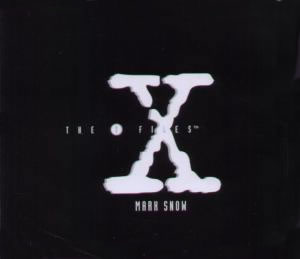
"Professional Widow" is a song written by the American singer-songwriter Tori Amos, released on her third album, Boys for Pele (1996). It is a harpsichord-driven rock song and its lyrics are rumored to have been inspired by the American songwriter Courtney Love. The song was released on July 2, 1996 by Atlantic and EastWest, as the third single from the Boys for Pele album in the US, containing remixes by the house music producers Armand van Helden and MK. The single reached number one on the US Billboard Hot Dance Music/Club Play chart. In Italy, the original version peaked at number two in October 1996. An edited version of the Armand's Star Trunk Funkin' Mix of "Professional Widow" was originally released as a double A-side single with "Hey Jupiter" in Europe and Australia.

"Up and Down" is a song by Dutch Eurodance group Vengaboys. Originally released in the Netherlands in February 1998, it reached number four in the United Kingdom in November 1998. It also reached number one on the US Hot Dance Music/Club Play chart in 1999. The Tin Tin Out remix of the song was sampled in DMC's remix of Cher's "Believe". The "Wooo!" voice in the song is sampled from "Crash Goes Love" by Loleatta Holloway.

"It's No Good" a song by English electronic music band Depeche Mode, released on 31 March 1997 as the second single from their ninth studio album, Ultra (1997). It was commercially successful, reaching number one in Denmark, Spain, Sweden and on the US Billboard Hot Dance Club Play chart. It entered the top 10 in Finland, Germany, Iceland, Italy, and the United Kingdom, where it peaked at number five.

"Too Funky" is a song written and performed by English singer and songwriter George Michael and released by Columbia Records in the United States and Epic Records elsewhere in 1992. The song was Michael's final single for his recording contract with Sony Music before he started legal action to extricate himself from it.

"Don't Call Me Baby" is a song by Australian house music duo Madison Avenue, released as the first single from their only studio album, The Polyester Embassy (2000). Written by Cheyne Coates, Andy Van Dorsselaer, Duane Morrison, and Giuseppe Chierchia, the song includes a bassline sample from "Ma Quale Idea" by Italo disco artist Pino D'Angiò, which in turn is based on "Ain't No Stoppin' Us Now" by McFadden & Whitehead.

"Firestarter" is a song by British band the Prodigy, released on 18 March 1996 as the first single from their third album, The Fat of the Land (1997). It was the group's first number-one single on the UK Singles Chart, staying on top for three weeks, and their first big international hit, topping the charts in the Czech Republic, Finland, Hungary, and Norway. In 2020, British newspaper The Guardian ranked the song number eight on their list of "The 100 Greatest UK No 1 Singles".

"You're Not Alone" is a song written by Tim Kellett and Robin Taylor-Firth and performed by British trip hop group Olive on their debut album, Extra Virgin (1996). First released as a single in August 1996, it found greater success in 1997 in a remixed version, reaching number one on the UK Singles Chart that May. The song has been covered by a number of artists, most notably by German trance DJ and producer ATB in 2002 and Danish singer-songwriter Mads Langer in 2009.

"How Bizarre" is a song written and performed by New Zealand musical group OMC. It was released in December 1995 as the lead single from their album How Bizarre and went on to top the charts of five countries: Australia, Austria, Canada, Ireland and New Zealand. Outside New Zealand, OMC is generally considered a one-hit wonder; they had a further few successful singles in New Zealand, including "On the Run" and "Land of Plenty".

"Sittin' Up in My Room" is a song by American recording artist Brandy Norwood. It was written and produced by Babyface and recorded by Norwood for the soundtrack of the 1995 film Waiting to Exhale, starring Whitney Houston and Angela Bassett. The song was among five of the album's singles and peaked at number two on the US Billboard Hot 100, seeing Norwood's furthest commercial success on the chart until 1997's "The Boy Is Mine". The bass intro is similar to that of the riff performed by bassist Larry Graham, of Sly and the Family Stone, on their hit "Thank You ", and its remix featuring LL Cool J contains a sample of "Haven't You Heard" by Patrice Rushen.

"Lemon Tree" is a song by German band Fool's Garden from their third album, Dish of the Day (1995). The band's lead vocalist, Peter Freudenthaler, said that he wrote the song on a Sunday afternoon when he was waiting for his girlfriend who did not come.

"Misled" is a song recorded by Canadian singer Celine Dion for her third English-language studio album, The Colour of My Love (1993). It was released as the second single from the album on 11 April 1994 by Columbia Records/Epic Records. The song was written by Peter Zizzo and Jimmy Bralower and produced by Ric Wake. "Misled" topped the US Billboard Dance Club Songs chart and reached number four in Canada. It also peaked at number 15 on the UK Singles Chart and number 23 on the Billboard Hot 100. Its music video was directed by Randee St. Nicholas.

"Killin' Time" is the debut single by British singer, songwriter and former model Tina Cousins, released on 9 June 1997 from her debut album, Killing Time (1999). The song was written by Mark Topham and Karl Twigg, and initially charted at number 80 on the UK Singles Chart. In 1999, German DJ Sash!, who had collaborated with Cousins on "Mysterious Times", remixed "Killin' Time" for its re-release on 15 March 1999. "Killin' Time '99" peaked at number 15 in the United Kingdom, number 16 in Finland, and number 17 in Spain.

"As the Rush Comes" is a song by American progressive house group Motorcycle. It was released as the group's first single in January 2004 and topped the US Billboard Hot Dance Airplay chart the same year, becoming the first year-end number-one Dance Airplay track. Additionally, "As the Rush Comes" became a transatlantic hit, peaking at number 11 in the United Kingdom and reaching the top 20 in Finland, Flanders, and the Netherlands.

"Block Rockin' Beats" is a song by British big beat duo the Chemical Brothers. Released in March 1997 as the second single and opening track from their second studio album, Dig Your Own Hole (1997), it topped the UK Singles Chart and peaked at number 40 on the US Billboard Modern Rock Tracks chart. It received a Grammy Award for Best Rock Instrumental Performance.

"We Come 1" is a song by British electronic band Faithless from their third studio album, Outrospective (2001). The song was issued as the album's lead single on 4 June 2001, two weeks before Outrospective was released. The remixes by Wookie and Dave Clarke that appear on the single releases are included on the bonus disc of the album Reperspective: The Remixes.

"Red Alert" is a song by English electronic music duo Basement Jaxx. It was released on 19 April 1999 by record label XL as the first single from their debut album, Remedy (1999). The vocals from the track were provided by Blu James. It reached number five on the UK Singles Chart and became their first number-one hit on the US Billboard Hot Dance Music/Club Play chart. As of September 2023, the single has sold and streamed 600,000 units in the United Kingdom, allowing it to receive a platinum certification from the British Phonographic Industry (BPI).

"Just the Way You Are" is the debut single of Italian house music group Milky. Although it did not chart in the band's home country, it was a top-10 hit in the United Kingdom, reaching number eight on the UK Singles Chart, and charted within the top 30 in Ireland, the Netherlands, New Zealand, and Romania. In the United States, it was the first song to make its official debut at number one on the Billboard Hot Dance Airplay chart dated 25 October 2003, even though it reached number one on 11 October, when it was an unpublished chart.

"The X-Files" is an instrumental written and produced by American film and television composer Mark Snow. On its parent album, The Truth and the Light: Music from the X-Files, the track is titled "Materia Primoris". It is a remixed version of the original theme Snow composed for the science fiction television series The X-Files in 1993. The composition was released as a single in 1996 and achieved chart success, particularly in France, where it reached number one on the SNEP Singles Chart. The composition has since been covered by many artists, including DJ Dado and Triple X; DJ Dado's version was a major hit in Europe while Triple X's version reached number two in Australia.

"This Is How We Party" is the debut single of Danish pop duo S.O.A.P., written by Remee and Holger Lagerfeldt. Released in December 1997, it was S.O.A.P.'s biggest hit, making it into the top 10 in many countries, including Sweden, where it reached No. 1. The single is certified platinum in Australia and gold in Belgium, France, New Zealand, and Sweden.

"That Girl" is a song by English reggae singer Maxi Priest featuring Jamaican reggae musician Shaggy. It was released on 10 June 1996 as the first single from Priest's sixth album, Man with the Fun (1996). The song samples the 1962 instrumental "Green Onions" by Booker T. & the M.G.'s. "That Girl" reached the top 20 in at least eight countries, including the United Kingdom, where it peaked at No. 15 on the UK Singles Chart. It also peaked at No. 3 on the Finnish Singles Chart, No. 4 on the Canadian RPM 100 Hit Tracks chart, No. 7 on the Australian Singles Chart and No. 20 on the US Billboard Hot 100.




















